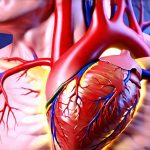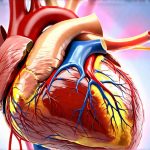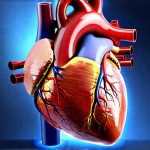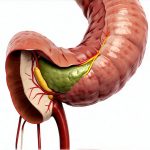Acid reflux is a common digestive issue affecting millions of people worldwide. It occurs when stomach acid flows back up into the esophagus, causing heartburn and other uncomfortable symptoms. While often manageable with lifestyle changes and over-the-counter remedies, it’s crucial to understand when chest pain associated with acid reflux warrants medical attention, as it can sometimes mimic more serious conditions like heart problems. Distinguishing between typical acid reflux discomfort and potentially dangerous chest pain is key for protecting your health.
Many individuals experience occasional heartburn after eating certain foods or large meals. This is generally not a cause for immediate concern. However, frequent or severe acid reflux, especially when accompanied by other symptoms or if it doesn’t respond to usual treatments, should prompt further investigation. Recognizing the nuances of chest pain and understanding when to seek professional help can be life-saving.
Understanding Acid Reflux & Chest Pain
Acid reflux happens because the lower esophageal sphincter (LES), a muscular ring at the bottom of your esophagus, weakens or relaxes inappropriately. This allows stomach acid to travel upwards, irritating the lining of the esophagus. The sensation is often described as a burning discomfort in the chest, but it can also manifest as other symptoms and even mimic pain associated with cardiac issues. It’s important to remember that chest pain isn’t always related to the heart; many factors can contribute to this symptom.
The relationship between acid reflux and chest pain can be complex. Sometimes, the esophageal irritation itself causes pain. Other times, the inflammation from chronic acid reflux can lead to spasms in the esophagus, which are also experienced as painful chest sensations. These spasms can feel remarkably similar to angina, a type of heart-related chest pain.
Recognizing Red Flags & When To Seek Immediate Help
Differentiating between heartburn and more serious conditions is vital. While mild, infrequent heartburn usually doesn’t require immediate medical attention, certain symptoms alongside chest pain signal the need for urgent care. These “red flags” indicate a potentially life-threatening situation that demands prompt evaluation by a healthcare professional.
Symptoms Suggesting A Cardiac Issue
Chest pain accompanied by shortness of breath, sweating, nausea, dizziness, or radiating pain to the arm, jaw, neck, or back should be considered a potential cardiac event. These symptoms are classic indicators of angina or a heart attack and require immediate medical attention – call emergency services without delay. Don’t attempt to self-diagnose; it’s better to err on the side of caution when it comes to your heart health.
Persistent or Worsening Acid Reflux Symptoms
If acid reflux symptoms are persistent, worsening despite over-the-counter treatments, or significantly interfering with daily life, a medical evaluation is necessary. This could indicate complications like esophagitis (inflammation of the esophagus), Barrett’s esophagus (a precancerous condition), or esophageal strictures (narrowing of the esophagus). Ignoring these issues can lead to more severe health problems down the line.
New Or Unusual Chest Pain
Any new, sudden-onset, or unusually severe chest pain should be evaluated by a doctor, even if you suspect it’s related to acid reflux. If the pain feels different from your typical heartburn experience – for example, sharper, heavier, or more prolonged – seek medical attention promptly. This is especially important if you have risk factors for heart disease, such as high blood pressure, high cholesterol, diabetes, or a family history of heart problems.
It’s crucial to remember that this information is not intended to be a substitute for professional medical advice. Always consult with a qualified healthcare provider for any questions you may have regarding your health or treatment options. Self-treating can be dangerous and may delay proper diagnosis and care. If you are experiencing chest pain, particularly if it’s accompanied by other concerning symptoms, seek immediate medical attention. Early diagnosis and appropriate management of acid reflux and related conditions can significantly improve your quality of life and prevent serious complications.


















